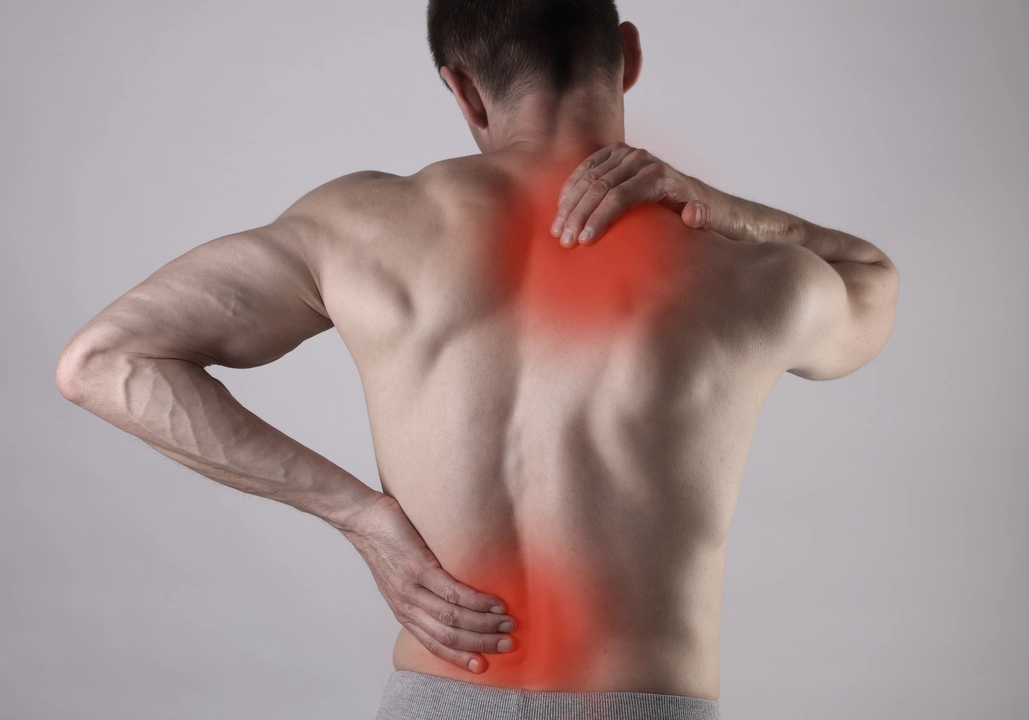Understanding Muscle Aches and Inflammation
Before delving into the relationship between muscle aches and inflammation, it is essential to understand what these terms mean individually. Muscle aches, also known as myalgia, are sensations of pain and discomfort that can occur in one or more muscles. They can be caused by factors such as overuse, stress, injury, or illness. On the other hand, inflammation is the body's natural response to injury or infection. It involves an immune response and can cause symptoms such as redness, swelling, warmth, and pain.
Now that we have a basic understanding of these two terms, let's explore their relationship in greater detail.
The Inflammatory Response and Muscle Pain
When our muscles are damaged or stressed, our body initiates an inflammatory response to repair the affected tissues. This response involves the release of various chemicals and immune cells, which help to remove debris, repair damaged cells, and protect against infection. While this is a necessary and beneficial process, it can also lead to increased pain and discomfort in the affected muscles.
The chemicals released during inflammation stimulate pain receptors in the surrounding tissues, causing us to experience muscle aches. This pain serves as a signal for us to protect and rest the affected area, allowing it to heal properly. However, prolonged inflammation can lead to chronic pain and may even contribute to certain conditions, such as fibromyalgia or arthritis.
Causes of Muscle Inflammation
There are several factors that can lead to muscle inflammation and the associated aches. Some common causes include:
1. Overuse: When we push our muscles beyond their limits, they can become damaged and inflamed. This often occurs during intense physical activity or exercise, particularly when we're not used to a certain movement or haven't allowed our muscles to recover properly.
2. Injury: Injuries such as strains, sprains, and tears can cause significant muscle damage, leading to inflammation and pain. These injuries may be caused by accidents, falls, or sudden, forceful movements.
3. Infections: Certain viral and bacterial infections can cause muscle inflammation, resulting in aches and pains. Examples include the flu, Lyme disease, and polymyositis (an inflammatory muscle disease).
4. Autoimmune disorders: In some cases, the body's immune system mistakenly attacks healthy tissue, causing inflammation. This can occur in conditions such as lupus, rheumatoid arthritis, and polymyalgia rheumatica.
Reducing Inflammation and Alleviating Muscle Aches
There are several strategies we can employ to help reduce inflammation and alleviate muscle aches. These include:
1. Rest: Giving our muscles time to heal is crucial for reducing inflammation and pain. It's important to listen to our body and avoid overexerting ourselves, particularly when we're experiencing muscle aches.
2. Ice and heat: Applying ice to the affected area can help to reduce inflammation and numb pain, while heat can help to relax tight muscles and improve blood flow. It's best to use ice during the first 24-48 hours after injury or intense exercise, and then switch to heat therapy.
3. Pain relief medications: Over-the-counter pain relievers, such as ibuprofen or aspirin, can help to reduce inflammation and alleviate muscle aches. However, it's important to use these medications as directed and consult with a healthcare professional if pain persists or worsens.
4. Stretching and gentle movement: Once the initial inflammation has subsided, gentle stretching and movement can help to promote healing and reduce muscle stiffness. It's important to progress slowly and listen to our body's signals to avoid re-injury.
Preventing Muscle Aches and Inflammation
While it's not always possible to prevent muscle aches and inflammation entirely, there are steps we can take to reduce our risk. These include:
1. Warming up and cooling down: Taking the time to properly warm up before exercise and cool down afterward can help to prevent muscle injuries and reduce the risk of inflammation.
2. Gradual progression: Increasing the intensity and duration of our workouts gradually can help to prevent overuse injuries and allow our muscles to adapt to new demands.
3. Maintaining a healthy lifestyle: Eating a balanced diet, getting enough sleep, and managing stress can all contribute to overall muscle health and may help to reduce our risk of inflammation and muscle aches.
By understanding the relationship between muscle aches and inflammation, we can take steps to reduce our risk, manage symptoms, and promote overall muscle health.



Rose Macaulay
Been there-slept wrong, woke up like a robot with rusted joints. Ice pack + Netflix fixed it.